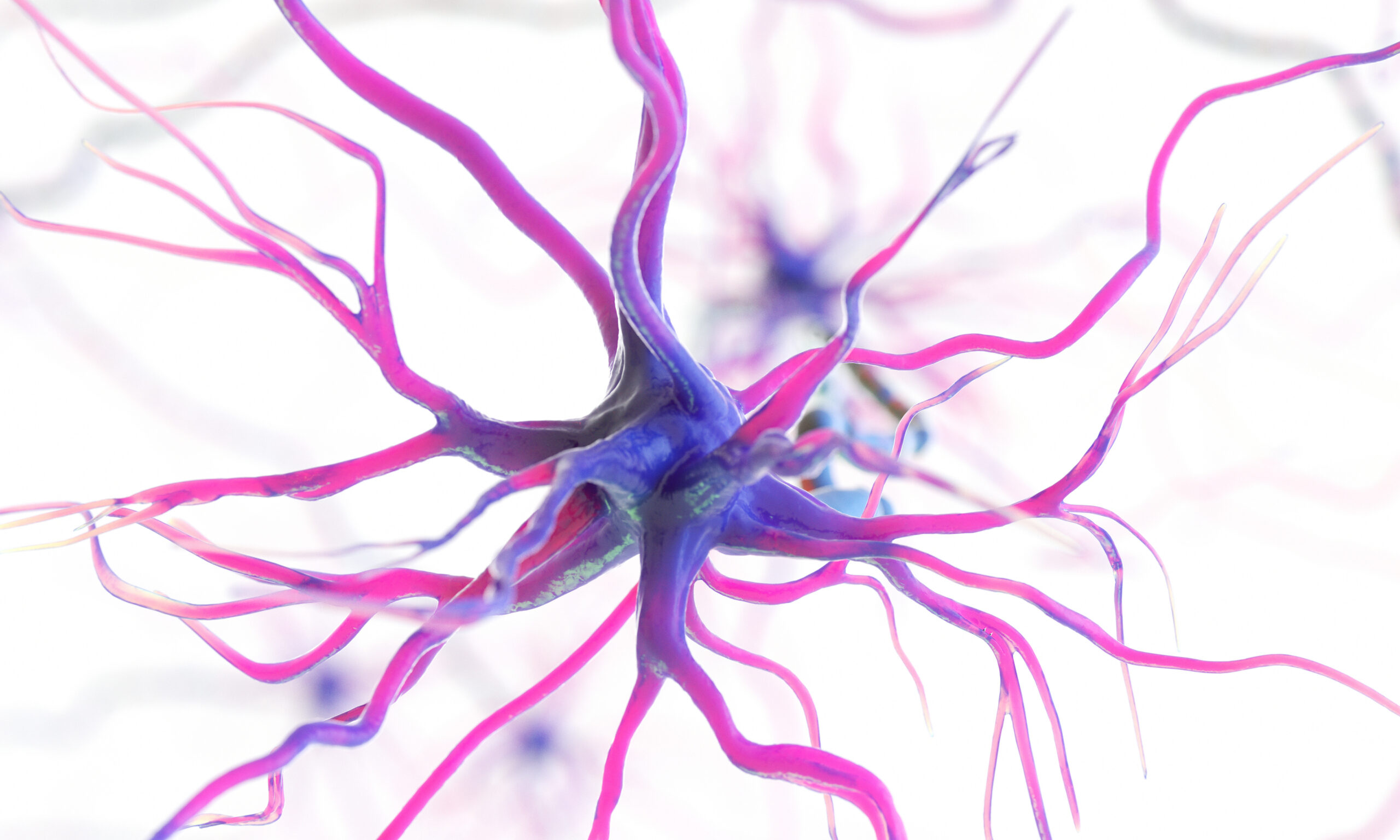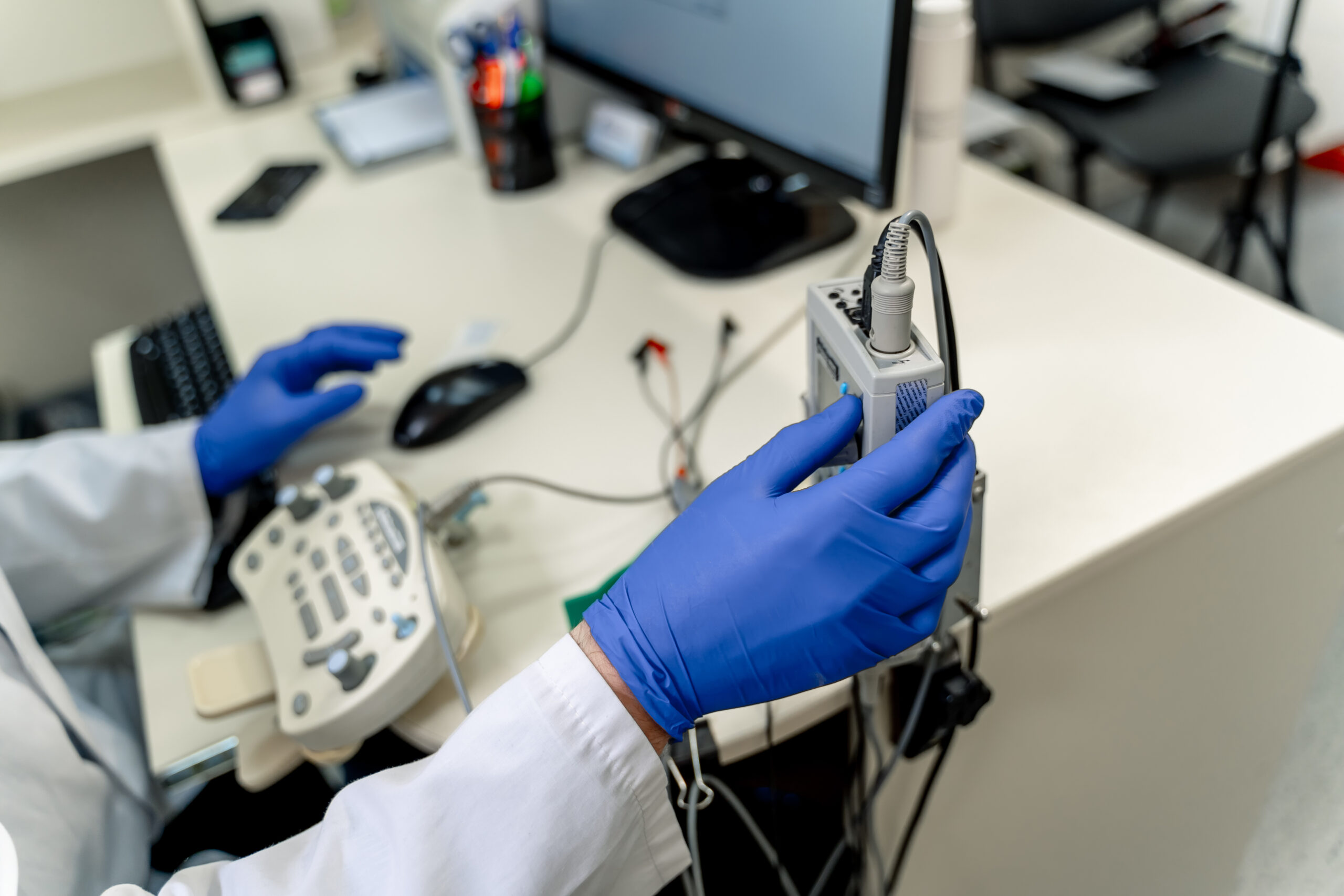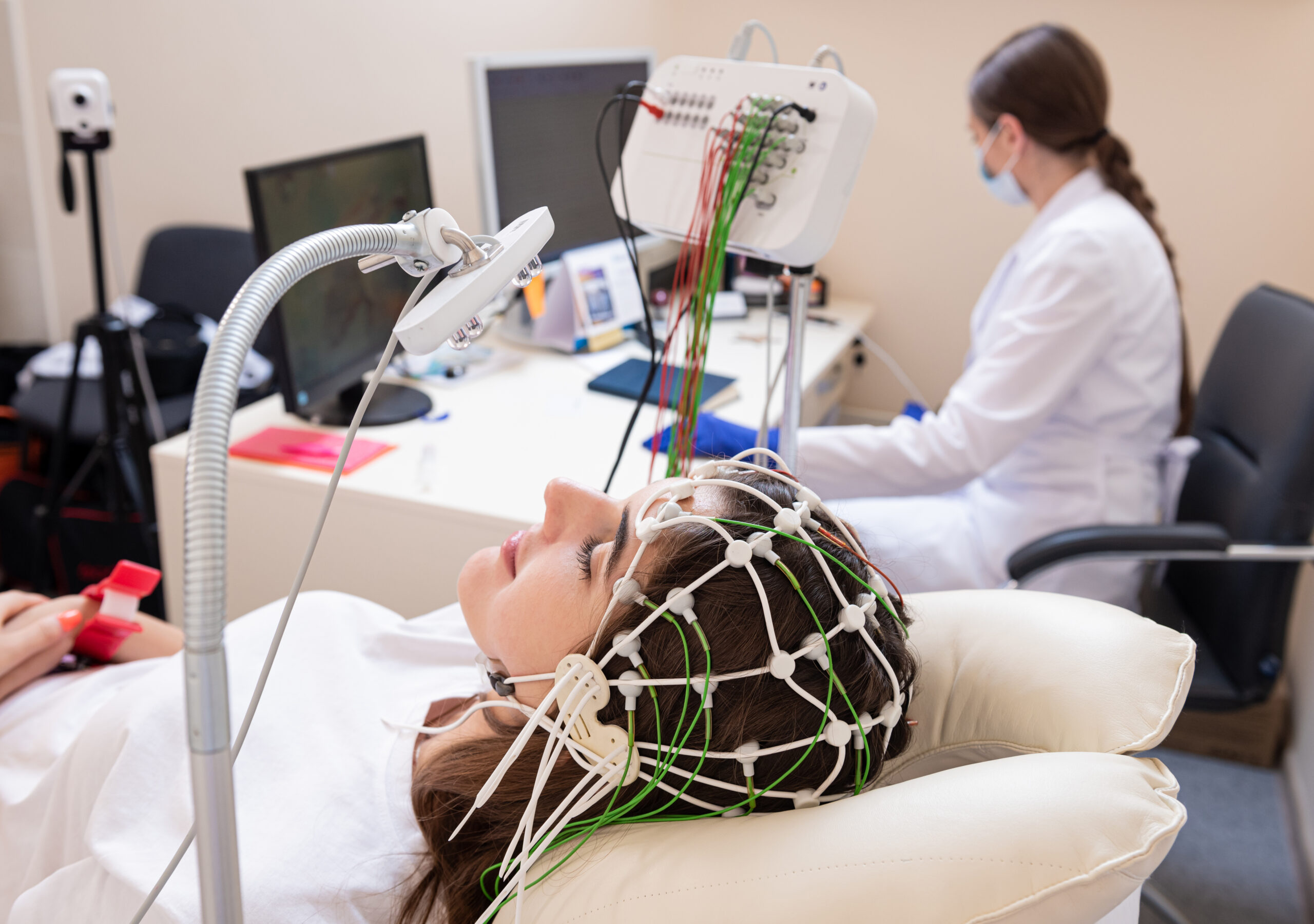Neurophysiology
Comprehensive assessment of the nervous system’s electrical signals—from brain waves to nerve conduction—provides critical insights into neurological function and guides targeted treatment decisions.
What is clinical neurophysiology?
Clinical neurophysiology uses EEG, EMG, nerve conduction studies and evoked potentials to measure how your brain, nerves and muscles work. These tests turn symptoms into objective data, helping confirm a diagnosis, gauge severity and monitor response to treatment.


Tests offered
- EEG (Electroencephalography): Records brain-wave activity; useful for seizures/epilepsy, blackouts and encephalopathy.
- Video-/Ambulatory EEG: Longer monitoring at home or in clinic to capture intermittent events.
- Nerve Conduction Studies (NCS): Measures speed/strength of electrical signals in nerves; key for neuropathy, entrapment (e.g., carpal tunnel) and demyelinating vs axonal patterns.
- EMG (Electromyography): Fine needle test of muscle activity; clarifies myopathy, radiculopathy and motor neuron/neuromuscular junction issues.
- Evoked Potentials (VEP, SSEP, BAEP): Assesses visual, sensory and auditory pathways—helpful in MS and other central nervous system disorders.
- Autonomic testing (where indicated): Evaluates blood pressure/heart rate responses and sweating in dizziness, syncope or small fibre neuropathy.

When these tests are recommended
-
Spells/blackouts, suspected epilepsy → EEG / video-EEG
-
Numbness, burning, weakness → NCS ± EMG
-
Back/neck pain with limb symptoms → EMG to assess root involvement
-
Visual change or sensory disturbance → Evoked potentials
-
Fatigue, proximal weakness → EMG for myopathy; CK and imaging may complement
-
Dizziness on standing, sweating changes → Autonomic studies
How to prepare
-
EEG: Clean, dry hair; avoid heavy styling products; bring a list of medications and recent sleep/wake pattern.
-
NCS/EMG: Wear loose clothing; keep limbs warm; avoid moisturisers on the day; blood thinners are usually fine—please tell us in advance.
-
Evoked potentials/autonomic: Bring glasses/hearing aids; eat and hydrate normally unless advised otherwise.
Do not stop regular medication unless specifically instructed.
What to expect on the day
-
EEG: Sensors on the scalp with conductive paste; you may be asked to breathe deeply and look at flashing lights. (~30–60 min; longer for video-/ambulatory.)
-
NCS: Brief, low-level electrical pulses on the skin to stimulate nerves. (~30–45 min, area dependent.)
-
EMG: A very fine sterile needle records muscle activity at rest and on contraction. Discomfort is usually mild and short-lived. (~20–40 min.)
-
Evoked potentials/autonomic: Non-invasive sensors measure responses to light clicks/visual patterns, mild skin stimuli, or positional changes.
Results & next steps
Findings are explained in plain English and integrated with your history, examination and other tests. You’ll receive a clear report and a treatment plan (or onward referral) tailored to your diagnosis—whether that’s adjusting medication, starting rehabilitation, or arranging further specialist care.
Why choose Dr FM
-
Dual expertise: Consultant Neurologist & Neurophysiologist—diagnosis and testing under one roof.
-
Quality acquisition: Careful electrode placement, limb warming and artefact control for reliable data.
-
Actionable reports: Results translated into practical treatment decisions, not just numbers.
Member of BSCN
As a member of the British Society for Clinical Neurophysiology (BSCN), Dr Francesco Manfredonia follows nationally recognised standards for EEG, EMG and nerve conduction studies. We will display the BSCN logo (used with permission) alongside this section and link to the Society to highlight this professional affiliation and reassure patients that our neurophysiology services meet current best practice and governance.
FAQ
Do these tests hurt?
EEG and evoked potentials are painless. NCS feel like quick taps; EMG may pinch but is brief and well tolerated.
Is it safe with a pacemaker or during pregnancy?
Yes—most tests are safe; please tell us about implanted devices so we can position equipment appropriately.
Can results be normal even if I have symptoms?
Yes—some conditions (e.g., small fibre neuropathy) can have normal standard NCS/EMG; we’ll discuss additional tests if needed.
BOOK YOUR CONSULTATION
Book a consultation with Dr Francesco Manfredonia (Dr FM) for clear diagnosis, compassionate care and a plan built around your life and goals.

